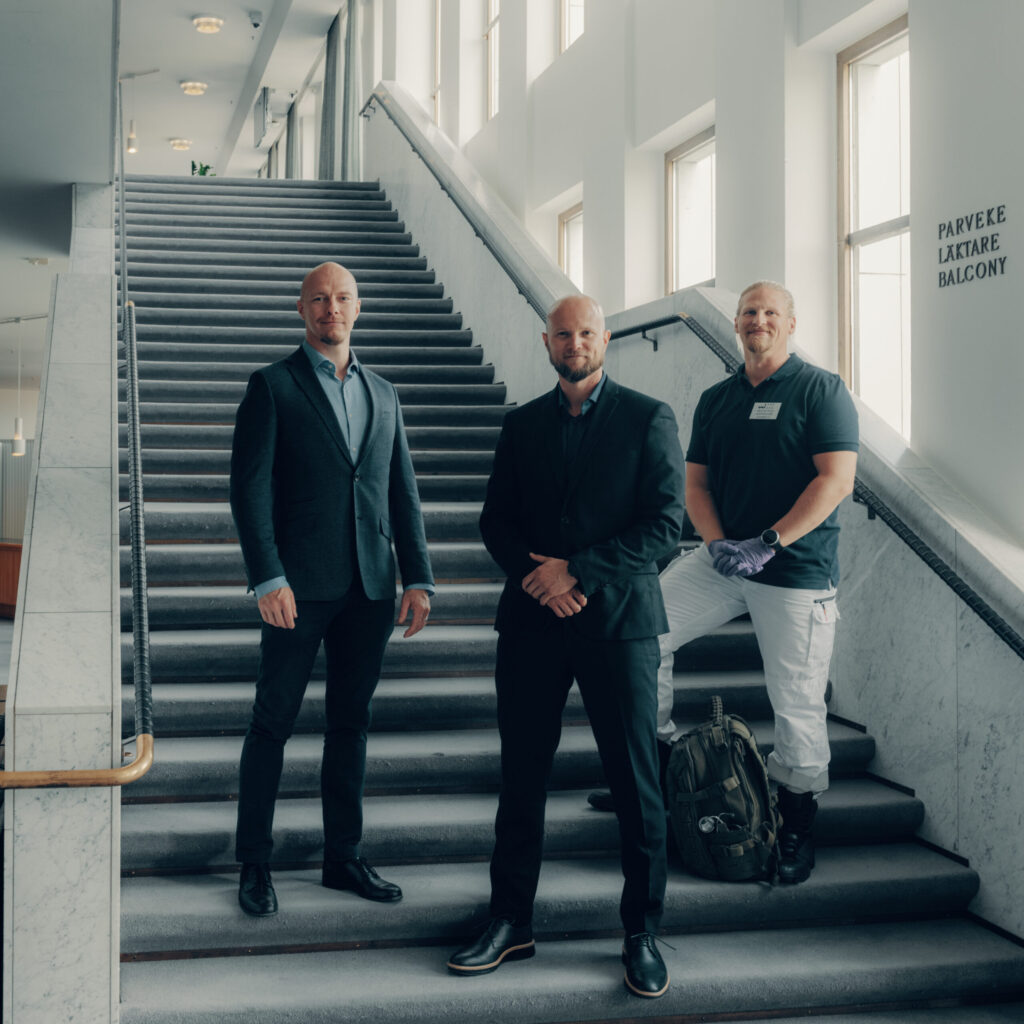
The Finnish Public Order Act requires that a emergency plan be drawn up for events of more than 200 people. Stewards and first aid are also required for smaller events, when certain criteria are met. Event security is often perceived as a compulsory expense for event organisers without any added any value. In the case of Takana, the event security means much more than a security guard standing at and opening the door. Takana’s core team has a military and special forces background and special areas of expertise and experience are utilised in the security sector as a whole. The role of Takana’s security services is to provide real added value to the event, its organisers and of course the valued people attending the event.
Versatile staff
Takana’s staff can adapt to numerous roles at events. Their main job is to take care of security, but also offer extra help to event producers in resolving those problems that always crop up. Takana’s security producers help boost customer loyalty by ensuring good planning and by being on the spot where required.
Security officers are often the first people to meet visitors arriving at an event. Takana professionals quickly integratea as natural part of the event production team. They proactively respond to issues at the planning stage already and during the event itself in situations where event organisers might not have the resources themselves.
We can do so much more than merely ensuring order prevails. For example, corporate events often tend to be on the quieter side and security guards main role is to be prepared. As a result, they can take on other jobs, if clients require such a service. Takana’s security expert and founder, Juha Stark, comments that customer centricity and a service-based mindset are the cornerstones of what they do.
For example, at many events, the set-up might change. If required, Takana can help to move items, eliminating the need to hire extra people and inflate costs.
In the summer, we were asked to help run an adventure day for an international company’s management team. At the planning phase, circumstances changed and we ended up taking full responsibility for the day’s activities. This speaks volumes about our customer-driven focus. Whatever service is required, we’ll find the right people, comments Stark.
Emergency responders at the core
Takana’s core personnel are people with emergency healthcare and firefighter backgrounds, so first aid skills at events are world class.
Bigger events don’t require a designated first responder to be on call, but just one at the first aid point. We have security staff at the events with first aid training. And we always bring our own first aid backpacks and defibrillator with us, comments Stark.
Stark also mentions that if someone faints or suddenly becomes unwell at a sauna event, you don’t have to think about where to get help on site, because professional assistance is always at hand. That person may be the same one who drives an ambulance on other days.
Many corporate events require a wide variety of activities, perhaps involving water, canoeing, or climbing etc. Takana’s staff have been involved in these activities often. The first responder can, if necessary, step up and assess the need for further treatment if injuries occur.
Event security is vital to business continuity and reputation management
As COVID-19 restrictions are being lifted, companies are increasingly striving to organise leisure events, seminars, and others that proved impossible in the summer. These events should therefore be taken into account from a continuity management perspective among others.
If a company’s staff are in the same location simultaneously, event security must be taken seriously. In the worst-case scenario, an incident could paralyse the company’s core business, says Stark.
If necessary, Takana professionals also carry out personal safety and security assignments. Examples could include company meetings, international VIPs, or political events. Stark explains that while the government is responsible for the security arrangements of ministers and its guests, it’s up to businesses to analyse their own security risks and how to prepare for their own events.
In Finland, security is viewed critically where the cost is concerned. The nation is one of the safest countries in the world. Therefore, faith is often placed in its relatively untroubled past and the expectation for this status to continue. The damage to the reputation of a company or other operators could be substantial if any security incidents occurred. For example, events in the energy industry attract various nature conservation organisations that are prepared to organise radical action and demonstrations, reports Stark.